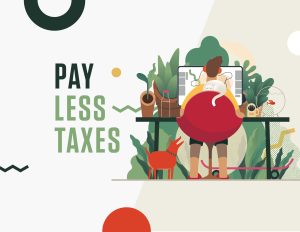When you purchase a property and you apply for a mortgage, your lender will look at several factors to make sure they are making a good investment: your income, your credit score, the amount of debt you carry, the condition of the property, and the Loan to Value Ratio (LTV).
But what is the loan to value ratio?
More importantly, if you have a poor loan to value ratio, how can you change it?
In this article, we’ll explore what you as a homebuyer or real estate investor need to know about loan to value ratio.
What is Loan to Value Ratio (LTV)?
The Loan to Value Ratio is a way to compare the amount of the loan you are seeking to the appraised value of the property that will secure the loan.
An LTV tells the lender just how risky the loan is. It will become a major factor in determining whether they will approve the loan or deny it.
How to Calculate Loan to Value Ratio (LTV)
The term loan to value ratio may sound complicated, but it is a simple concept.
To determine the Loan to Value Ratio, you divide the amount of the loan by the appraised value of the property.
For example, if you are looking to purchase a property that has an appraised value of $100,000 and you have $20,000 to invest as a down payment, you will be seeking a loan of $80,000.
In this case, the Loan to Value Ratio is 80%, because the amount of the loan is 80% of the value of the property.
Once you calculate the loan to value ratio, the next question is this: what is a good loan to value ratio?
What is a Good Loan to Value Ratio?
A lower Loan to Value Ratio means that you have more equity in the property, making the deal less risky to lenders.
An LTV of 80% is traditionally a “magic number,” a benchmark used by many lenders for conventional mortgages.
In the example above, if you put down less than 20% and your LTV goes above 80%, you may have to purchase Private Mortgage Insurance (PMI) that increases your monthly payment on the loan.
How to Lower your Loan to Value Ratio (LTV)
When your LTV is below 80%, you will be able to remove the expense of Private Mortgage Insurance, and you may get a better rate on your loan.
You can also lower your loan to value ratio by making a larger down payment on the property.
Or, you can take your down payment and purchase a less expensive property.
Once you have secured the loan, your loan to value ratio will decrease as you repay the loan.
How to Improve your Loan to Value Ratio (LTV) When Refinancing
In the case of refinancing, your LTV shows how much equity you have in your home. The amount of equity you have can determine whether or not the lender will refinance the loan.
Pay More On Each Mortgage Payment
One way to improve your loan to value ratio before refinancing is to pay more on each mortgage payment in the months or years leading up to your request to refinance, because the more equity you have in your property, the lower your LTV.
Wait & Pay More Mortgage Payments
Another way to improve your LTV when you refinance is to simply wait. As you make your mortgage payments, even if you do not pay extra, you are paying down your loan and building equity in your home.
Also, if prices in your neighborhood are rising, waiting until the appraised value of your home goes up will lower your LTV.
How your Loan to Value Ratio (LTV) Affects your Loan Options
If you have a lower LTV, you have more of your own money invested in the property.
Mortgage lenders see a lower LTV as a less risky loan because you are more likely to continue making your mortgage payments to protect your equity.
That means that the lender is more likely to approve the loan, and you may get a better rate.
The Bottom Line: Loan to Value Ratio (LTV)
Whether it’s for a house that you plan to live in or a real estate investment, before you go to a mortgage lender and apply for a loan, take a good look at your loan to value ratio and other factors that may affect your ability to secure the mortgage.
If your LTV is higher than 80%, you may be able to get another type of loan other than a conventional mortgage.
Some other types of loans, like a VA loan if you qualify, will allow you to borrow more than 80% of the value of the property.
In the case of refinancing, if you can, pay a little more each month toward your mortgage payment to lower the amount you owe on your home when you refinance. Even if you can’t afford a higher monthly payment, your LTV will continue to go down as you make your payments and build equity in your home.
The bottom line is that a loan to value ratio of 80% or lower will boost your chances of securing the loan, eliminating the need for paying PMI and lowering your interest rate when you are approved.PMI and lowering your interest rate when you are approved.













